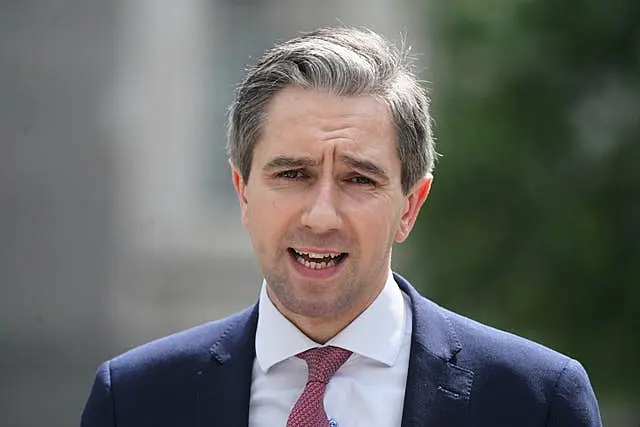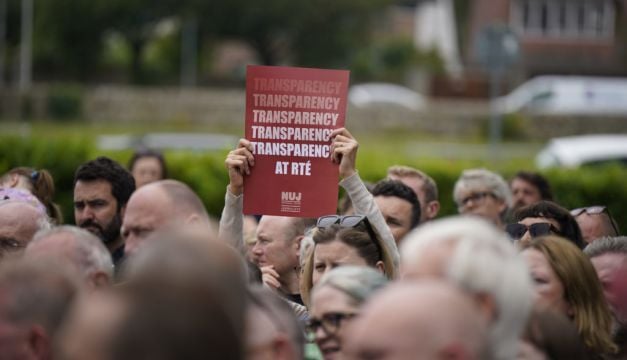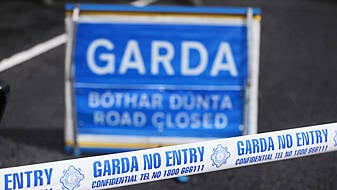Simon Harris has said he will not be asking his constituents to pay more money to RTÉ without a “clear reform plan” presented by the broadcaster.
The Minister for Further and Higher Education was speaking as new figures indicate there has been a further drop in TV licence fee revenues, putting pressure on the Government to make a decision on a long-term funding option for RTE.
Figures supplied by the Department of Tourism, Culture and the Media show that 9,041 TV licences were purchased in the third week in August, compared to 12,507 licences in the same week last year.
The €160 licence fee, an obligatory payment for households with a television, goes towards funding operations at the public service broadcaster.
The Department of Media has warned that there are variations during the year in TV licence purchases, and may not accurately reflect a drop in the annual figure.
Speaking to reporters in Dublin on Wednesday, Mr Harris said: “Before I ask any of my constituents in Co Wicklow to spend any more money in relation to any of these matters – and at the end of day that’s what Government money is, it’s not magic money, it’s money that comes from the people of Ireland – we need to see a very clear reform plan for RTÉ.
“And I respectfully suggest, when people keep on saying: ‘What is the Government going to do?’ – what is RTÉ going to do?
“It is for RTÉ and the RTÉ board now to come forward with a plan that shows that there’s a different culture, that there’s a different attitude in relation to RTE and to show the people of Ireland… that they can have confidence that the money being invested in RTÉ is going into public service broadcasting.
“Let’s remember this whole controversy and sorry saga, in my view, really was rested in the fact that there was a clear blurring of the lines between more public service broadcasting or commercial activities, and that’s what needs to be unpicked.”
He said the current Government would make a decision on a long-term funding model for the broadcaster before the next general election.
“But we also can’t be ignorant to the fact that we have just gone through a period of huge upheaval, where public trust and confidence has been eroded, and Government now awaits to hear from RTÉ, from the new leadership team there, from the board as to their plan.
“I heard questions being asked at Oireachtas committees around what is public service broadcasting, and ‘is everything that RTÉ does public service broadcasting?’. I thought that answer lacked serious clarity,” he said.

The crisis at the public broadcaster began on June 22nd when RTÉ said it had not correctly declared fees to its then highest-paid earner Ryan Tubridy between 2017-2022, but has widened out to other financial and governance matters.
In the last week of June, the week after the RTÉ controversy first arose, 10,612 licences were bought, compared to 15,825 in 2022.
Across the month of July, 40,103 licences were bought, which compares to 57,400 in the same month last year. (Week 1: 11,241 vs 15,432; week 2: 8,922 vs 12,981; week 3: 9,279 vs 14,836; week 4: 10,661 vs 14,151)
In the first three weeks of August, 25,568 licences were bought, representing a drop from the figure of 40,147 in 2022. (Week 1: 9,361 vs 15,030; week 2: 7,166 vs 12,610; week 3: 9,041 vs 12,507.)
This is 37,089 fewer licences across eight weeks when compared directly to the numbers bought in the same period last year, representing a possible loss of €5.9 million.

The Department of Media said in a statement: “The buying or renewal of a TV licence is something that can be done 365 days of the year through various methods.
“While reminders are sent out on the expiration of the TV licence, variations can occur in the timing of the purchase/renewal of a licence, and as such the number of valid licences on a given day is not recorded as it may not give a true picture of overall annual sales.
“The annual sales figures provide the more complete picture, and determines actual revenues,” it said.
A total of 947,924 licences were bought in 2022; 951,454 licences in 2021; 961,277 in 2020; 1,025,534 in 2019; and 1,038,986 in 2018.
Minister for Media Catherine Martin said in mid-July that she was monitoring the figures to see if it becomes a long-term trend, while chairwoman of the broadcaster’s board Siún Ní Raghallaigh said there is concern about the decline among the organisation’s board and management.
RTÉ director-general Kevin Bakhurst announced last week that Tubridy would not return to his radio programme because trust had “broken down” between the two sides.
Tubridy, who has not spoken publicly since the decision, posted a video of a coastline on Wednesday with the caption: “A new dawn, a new day, a new beginning. Stay tuned for more…”







